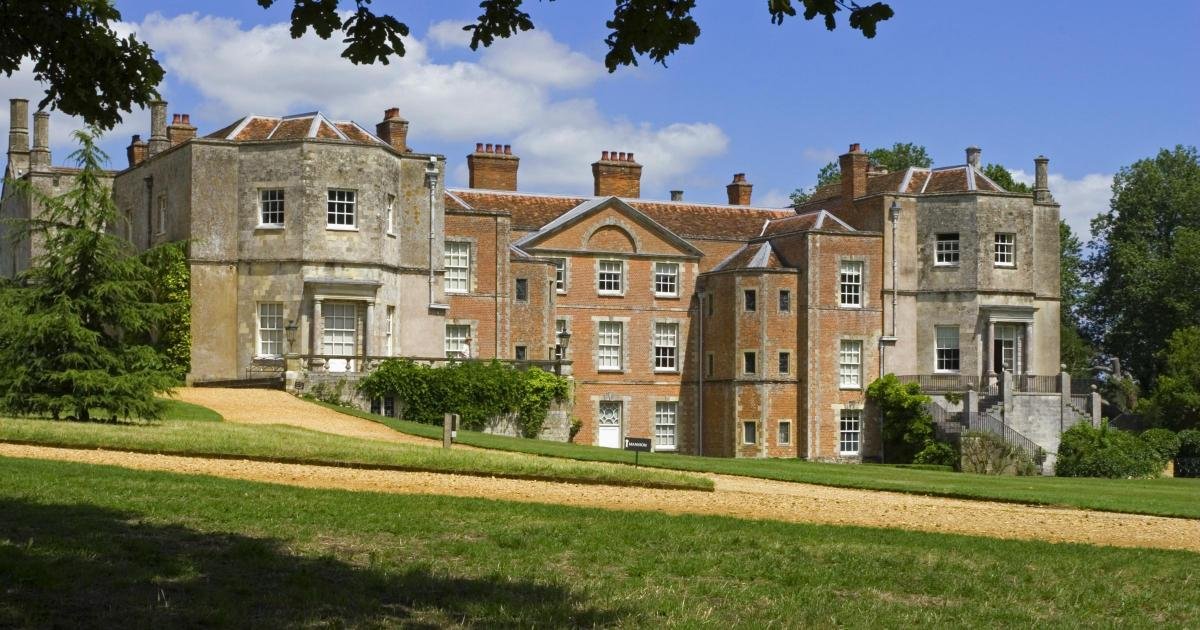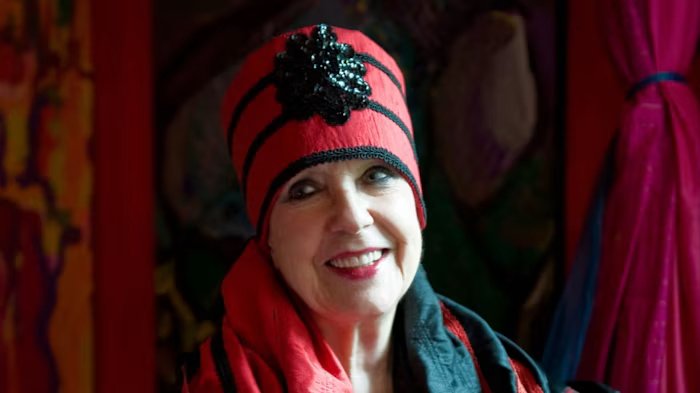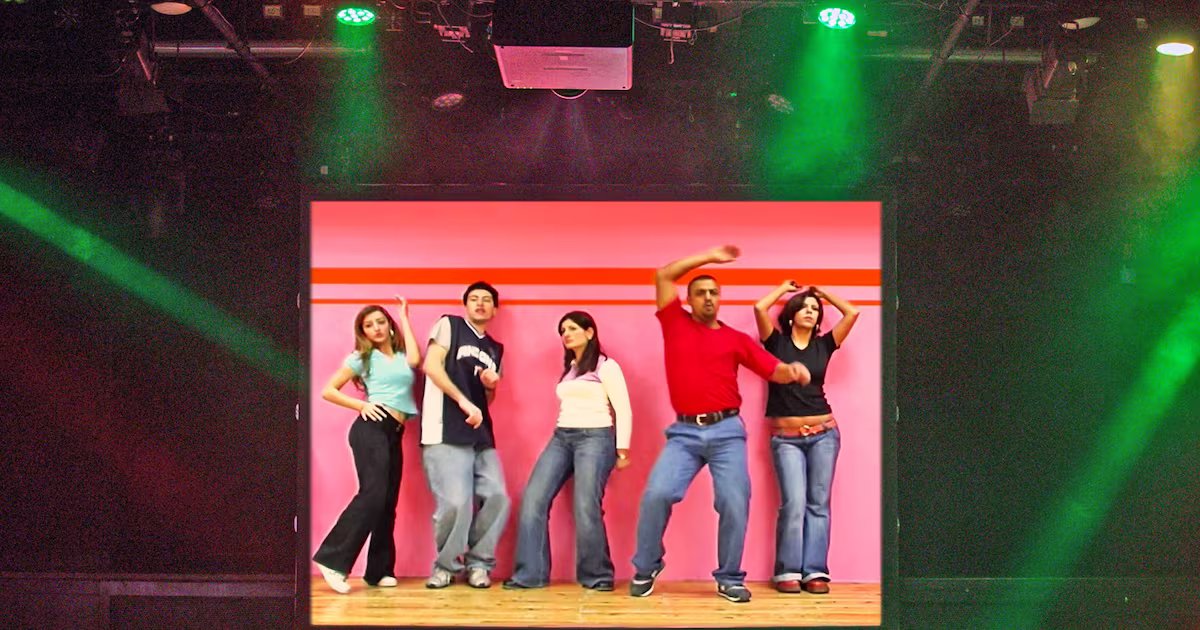Thanks to high inflation and geopolitical turmoil, it has been a buyer’s market for the past year, and if the opening day at Art Basel is any indicator, that’s not changing any time soon.
The invite-only VIP crowd on Tuesday morning seemed a little younger than in past years, but the works on offer did not. Many presentations by the 285 exhibitors trended toward older and more established artists, suggesting that dealers are playing it safe, bringing only what they think they can move in this tough climate.
While plenty of collectors are eager to buy, many are “weighing their acquisitions more carefully,” said art advisor Amanda Schmitt, who’s seeing “more confidence in historical work or discovering artists at a mature stage in their career, rather than emerging artists.”
Recent auctions have registered a cooling in the ultra-contemporary market, although there has not been a rush to blue-chip works as in previous downturns. Buyers seem to want works by artists with a firm foothold in the market, but also with room to grow.
“Downturns present great opportunities to buy,” Grace Rong Li, a Zurich art advisor, said. “One of my most active buying periods for clients was during the art market downturn from fall 2008 to the end of 2009, a time when I could acquire the best quality art at the best prices for clients.”
In that sense, this year’s Art Basel—the first helmed by Maike Cruse, who was appointed director last summer—has delivered. Even though sales are rolling in about as quickly as the wheat is growing on the Messeplatz, as part of Agnes Denes’s Honoring Wheatfield installation, and despite fewer blockbuster works, there are plenty of high-value offerings at justifiable prices.
David Zwirner reported that Joan Mitchell’s diptych Sunflowers (1990–91) sold before lunchtime, suggesting that the deal was firm before the doors even opened. Its $20 million price tag makes it one of the most expensive works at the fair. The painting, from one of Mitchell’s final series, is similar to one that dealer John Cheim sold in November for $28 million, setting an auction record for the Abstract Expressionist. A few booths away, Mnuchin had a smaller Sunflowers diptych from 1991, priced at $7.5 million; it sold at Christie’s New York last November for $6.1 million.
Joan Mitchell’s Sunflowers (1990–91) at David Zwirner’s booth. Photo: Margaret Carrigan.
At Pace, Agnes Martin’s Untitled #20 (1974) was on offer for $12.5 million, and sold before the afternoon was over. Meanwhile, an untitled drawing from 1946–47 by Arshile Gorky priced at $16 million was the top reported sale at Hauser and Wirth’s booth during the preview. A large canvas by Philip Guston, whose acclaimed touring retrospective closed at Tate Modern in February, had yet to sell.
Plenty of Jean-Michel Basquiats were present, but none had sold by press time. A 1982 drawing at Gagosian’s booth that went for $13.5 million at auction in 2015 is now priced “slightly more than that,” according to a sales rep. A $10 million painting is available at Acquavella, and a 1984 work at Edward Tyler Nahem, with significant underpainting, is priced at $5 million to $6 million.
Jo Stella-Sawicka, senior director of Goodman Gallery, said that “there are a lot of doom-and-gloom views on the market right now,” but that works priced in line with their quality would sell. The gallery, which was founded in Johannesburg, sold several works by Atta Kwami (currently the subject of a solo show at its London outpost) at prices ranging from $40,000 to $200,000. Although the Ghanaian painter, who died in 2021, does not have a well-developed secondary market, those numbers are leaps and bounds above the $28,000 record set for his work Atonsu Agogo (1995) at Christie’s last October.
Goodman also has a 1985–87 diptych story quilt by Faith Ringgold, South African Love Story #2 (Part I and II), priced at $2.4 million, well over the $1.25 million record set for her last month at Sotheby’s New York. It is one of three works the gallery has by the American artist, who died in April at 93.
Faith Ringgold’s South African Love Story at Goodman Gallery’s booth. Courtesy of the gallery.
At P.P.O.W., three works by Martin Wong were on view, although one, Tattoos Reveal–Slayer’s Secret World of Delusions (1984), priced at $575,000, sold in advance of the fair. A new record for Wong, $1.6 million, was set at Christie’s last month with a work from the same era. Two other works by the American artist, a small portrait and a large blue canvas featuring skulls and Kali, the Hindu goddess of death, were still available, for $65,000 and $750,000, respectively. That large blue one, painted in 1999, was the last painting Wong ever made.
Several large-scale works in the fair’s Unlimited section were also sold at the end of the VIP day, including Survival (1989) by Jenny Holzer, which was brought by Hauser and Wirth and acquired for an undisclosed sum by an Asian museum. The American artist currently has a multi-floor installation that wraps around the inside of the Guggenheim Museum in New York. Yayoi Kusama’s Aspiring to Pumpkin’s Love, the Love in My Heart (2023), brought by Zwirner, went for $5 million.
One sign of the weaker market: A number of notable works that failed to sell recently have resurfaced in Basel. That includes another Mitchell painting at Zwirner, Yves (1991), that was withdrawn from Sotheby’s contemporary evening sale in November 2022, where it had been estimated at $10 million to $15 million.
Christopher Wool’s Untitled (OH, OH), 1990, at Gagosian’s stand, was bought in at a Christie’s sale in 2021 on an estimate of $8 million to $12 million, and Andy Warhol’s A Boy for Meg (1961), also at Gagosian, appeared at Art Basel Miami Beach last year.
Torkwase Dyson’s Errantry (2024) installed in Art Basel’s Unlimited sector. Presented in collaboration with Gray and Pace Gallery © Torkwase Dyson.
With the Whitney Biennial and the Venice Biennale both underway, the old adage of “see in Venice, buy in Basel” still holds true. Pace and Gray sold an Unlimited sculpture by Torkwase Dyson, who’s at the Whitney, to Brazil’s Inhotim Museum for $380,000. Paintings by Alioune Diagne, who is representing Senegal in Venice, sold for between $32,000 and $85,000 at Galerie Templon’s booth. The Brazilian gallery Gomide and Co. brought three pottery works by the Guaraní Indigenous artist Julia Isídrez, who is in the Biennale’s main exhibition, “Foreigners Everywhere,” priced between $15,000 to $20,000—a range that has increased tenfold since 2022. Lehmann Maupin sold two paintings by Korean artist Kim Yun Shin for an undisclosed sum to collectors based in Seoul and Hong Kong; her sculptures are also in the central Venice show.
At Edward Tyler Nahem’s booth, there was a corner devoted to Willem de Kooning, with a bronze cast of Crossed-Legged Figure (1972), number one from an edition of seven, at its center. It has been in a private collection for more than 20 years, and it is priced between $1.5 million and $2 million. Another version of the sculpture is in the de Kooning survey now on view at the Gallerie dell’Accademia in Venice, running alongside the Biennale, which concludes on November 24.
Art Basel, for its part, ends on Sunday.
Follow Artnet News on Facebook:






